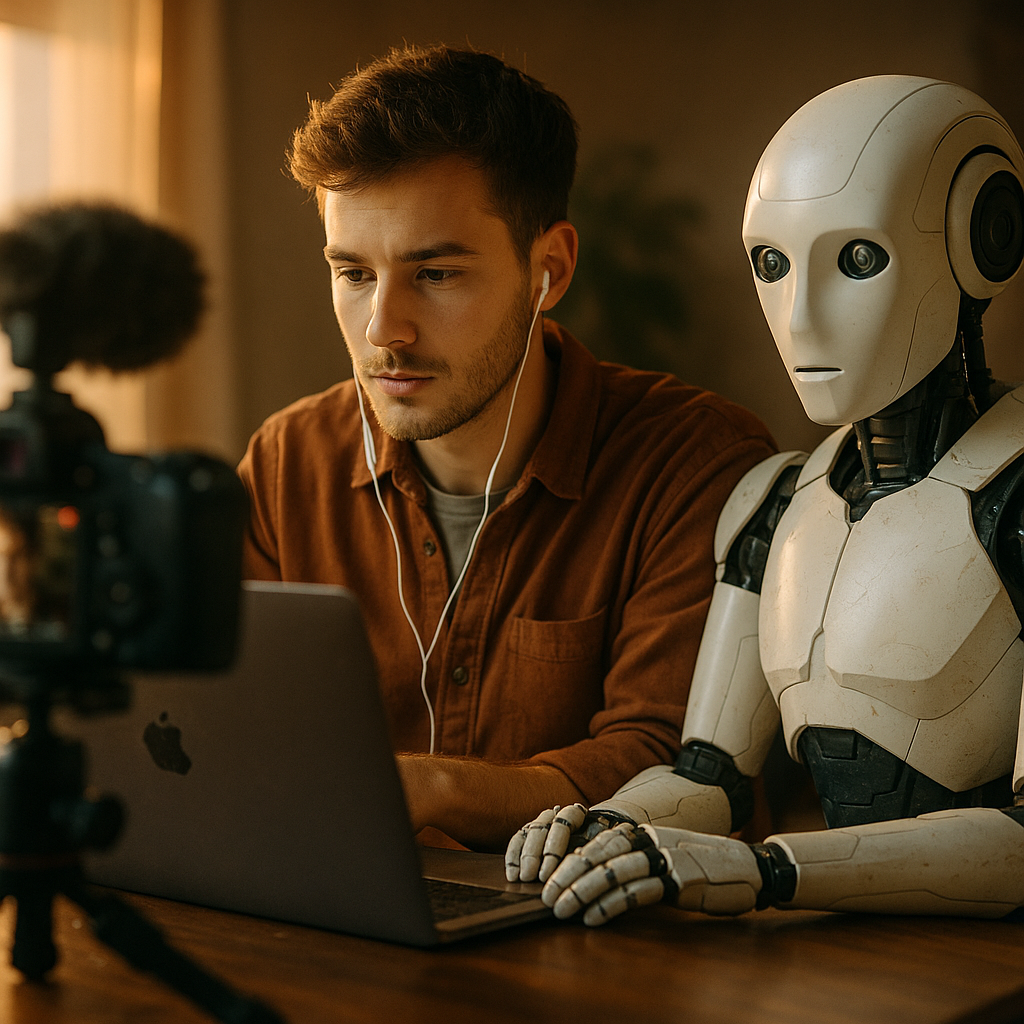AI-generated content is rapidly transforming digital landscapes, but how does it impact relationships between creators and their audiences or collaborators? In 2025, as artificial intelligence reshapes content production, understanding its influence on creator relationships is critical. Whether you’re a marketer, entrepreneur, or digital artist, knowing what’s at stake will help you navigate this evolving terrain.
The Evolution of AI Content Creation and Community Trust
Artificial intelligence has empowered creators to produce content faster and often at scale. According to the Content Marketing Institute’s 2025 survey, over 78% of digital creators now use AI tools for everything from ideation to final drafts. Yet, with this technological leap comes a new set of challenges regarding authenticity and transparency.
Trust between creators and their followers is foundational. Audiences value unique perspectives, lived experiences, and a human voice. Excessive reliance on AI-generated content risks diluting this connection, as followers may question whether the thoughts they’re engaging with are genuine. Maintaining transparency about the use of AI, such as disclosing when content is machine-generated or human-edited, helps sustain community trust.
Collaboration: How AI Reshapes Creator Partnerships
Collaborating with fellow creators, brands, or agencies traditionally involves brainstorming sessions, negotiations, and creative synergy. Now, AI can automate sections of this process—streamlining workflows, generating concepts, and even merging creative styles. However, this automation creates new expectations and sometimes tension within partnerships.
For example, when multiple contributors use AI tools, questions arise around ownership and credit. Is the AI a silent collaborator? According to a 2025 Digital Rights report, over 54% of creators have renegotiated partnership terms to address new IP complexities. Effective collaborations now require clear communication regarding AI’s role, attribution practices, and ethical guidelines to foster healthy professional relationships.
Audience Engagement and the Perceived Value of Content
Engagement metrics are shifting as audiences become more discerning about AI-generated content. While AI can optimize content for trends, hashtags, and SEO, the emotional resonance of creator-originated stories sets successful content apart. Recent studies show that content with a visibly personal touch drives up to 40% higher engagement rates than entirely AI-scripted material.
Creators who blend AI efficiency with authentic storytelling reinforce their reputation for quality and originality. Adding insights, anecdotes, or real-life experiences enhances trust and differentiation. Being transparent about which elements are AI-generated versus personally crafted helps maintain the perceived value of content and strengthens long-term audience relationships.
Monetization, Copyright, and Legal Considerations for Creators
Monetizing AI-generated content presents legal and ethical complexities. In 2025, copyright frameworks are still adapting to accommodate works created or co-created with artificial intelligence. Creators must ask: Who owns the final product—the person prompting the AI, the platform, or the AI model’s developers?
Legal experts recommend keeping thorough documentation of the creative process, including prompts, edits, and collaboration details. When entering sponsorships or partnerships, clarify terms regarding ownership and credit. Proactive protection of your original contributions ensures both fair compensation and supported creator relationships, while helping to prevent disputes or misuse.
Mental Health, Creative Burnout, and Career Sustainability
The integration of AI tools can alleviate creator burnout by automating repetitive tasks. However, an overreliance on AI may also lead to questioning one’s creative worth or feeling disconnected from the audience. Maintaining creative satisfaction and mental well-being hinges on balancing AI’s convenience with personal engagement.
Setting boundaries on the amount of automated content and preserving time for hands-on creativity are crucial. Many creators are intentionally reserving space for passion projects—even if these are less scalable than AI-assisted content—to keep their unique voice alive and career fulfilling. Open discussions within creator communities also help address the psychological impacts of these rapid industry changes.
Best Practices for Nurturing Creator Relationships in the AI Era
To thrive, creators should adopt strategies that foster transparent, value-driven relationships:
- Disclose AI involvement: Be upfront about which elements of your content are AI-assisted.
- Prioritize originality: Use AI for support, but not as a replacement for human insight or experience.
- Clarify collaborations: Agree on attribution, ownership, and credit policies before starting joint projects.
- Engage your audience: Invite feedback and be responsive about how you use AI tools in your workflows.
- Continually upskill: Stay informed about legal, ethical, and technological developments affecting creator rights and relationships.
Applying these best practices helps creators and collaborators nurture trust, innovation, and resilience amid accelerating AI adoption.
FAQs: AI-Generated Content and Creator Relationships
-
Does using AI-generated content harm creator-audience relationships?
Not inherently. Transparency about AI usage, combined with genuine engagement and original input, maintains and even enhances audience trust. Issues arise when creators misrepresent or over-rely on AI for content creation.
-
Who owns content created with AI assistance?
Ownership depends on the level of human involvement, platform policies, and applicable copyright laws. Creators should thoroughly document their input and clarify terms with collaborators and platforms.
-
Can AI help reduce creative burnout?
Yes. AI tools can streamline repetitive tasks, enabling creators to focus on ideation and passion projects. Still, it’s important to balance automation with personal creativity to prevent disconnection or loss of fulfillment.
-
How should creators disclose the use of AI in content?
Clearly mention in captions, articles, or content notes which sections involved AI assistance. Regularly communicating your creative process strengthens authenticity and trust.
-
What is the biggest risk of AI-generated content for creator relationships?
The most significant risk lies in eroding trust if audiences feel misled or collaborators feel undervalued. Proactive transparency and open communication prevent misunderstandings and reinforce productive relationships.
AI-generated content is redefining how creators produce and share ideas, but authentic relationships remain the cornerstone of digital success. By blending innovation with transparency and meaningful connection, creators can sustain audience trust and collaborative growth in 2025 and beyond.
